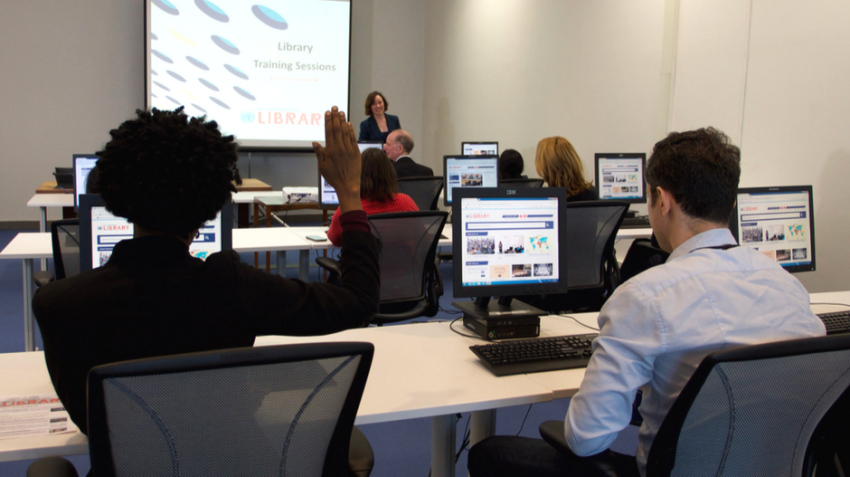Between 22 September and 16 October, the Integrated Training Service of the Department of Peace Operations (DPO) delivered a series of transformative training programmes for mission trainers and training focal points at the Regional Service Centre in Entebbe:
-
“Enhancing Mission Capacity to Deliver Police-Specific Induction Training” (PSIT) and “Enhancing Mission Capacity to Deliver Military-Specific Induction Training” (MSIT) – teaches how to tailored induction programmes for seamless integration of uniformed personnel into mission environments.
-
“Building Mission Capacity to Design & Deliver Exercises” - prepares trainers to plan and conduct realistic simulation exercises.
-
“Technology and AI-Driven Learning for Efficient Peace Operations” - enables trainers to apply generative AI throughout the “Analysis, Design, Development, Implementation, and Evaluation (ADDIE)” phases of the training cycle.
These programmes represent a shift from lecture-based methods to participatory, dynamic, technology-enabled, and AI-integrated instructional design.
“Many new insights learned”
Participants from civilian, military, and police components of peacekeeping and special political missions engaged in hands-on learning and peer-to-peer exchange.
The series included practical application of tools and techniques that align with the UN’s strategic focus on innovation, efficiency, and interoperability.
“The training was very useful … and many new insights learned,” said one participant.
“This course brought me up to speed in a much-needed skillset. AI is no longer optional; it’s essential,” said another participant of the AI-focused course, which introduced platforms such as UN-approved Microsoft Copilot as well as ChatGPT, Gamma, and Pictory.
Mission-specific training aligned with mandate implementation
Across all sessions, participants enhanced their facilitation skills and explored ways to make learning more interactive through new activities and delivery methods. They learned to design and deliver mission-specific training aligned with mandate implementation.
These initiatives are part of a broader transformation in peacekeeping training culture, aligned with the Pact for the Future and UN 2.0 vision, which call for cost-effective, streamlined operations and the strategic use of technology.
Participants have committed to rolling out awareness sessions, revising training materials, and coaching other mission personnel to facilitate knowledge transfer.
The Integrated Training Service will ensure that momentum is sustained through follow-up activities, including issuing of standardized templates, conducting post-training monitoring, and maintaining communities of practice, to foster collaboration, advanced learning, and shared innovation.




